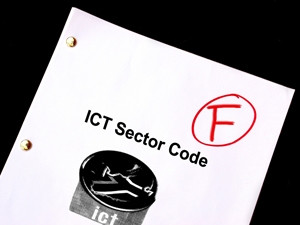
The creation of a uniform and enforceable open access regime, an understanding of net neutrality, and the creation of a regulator that is equipped to translate policy into practice are on the Internet Service Providers' Association's (ISPA's) wishlist for the eventual ICT legislation set to be debated in 2016.
ISPA's commentary follows the recommendations made by the ICT panel of experts as set out in the National Integrated ICT Policy Review Report published in March this year.
The recommendations will be used to develop a final policy position for ICT in SA - in the form of a white paper - by the end of March 2016.
ISPA regulatory advisor Dominic Cull says the final report is an excellent document that represents a significant step in the right direction. "ISPA supports in particular the provisions around net neutrality, open access service competition, and the need to beef up the Independent Communications Authority of SA (ICASA)."
He says the panel provided "a rational and well-considered basis on which to proceed on this landmark journey of critical importance to SA's future economic health and democratic wellbeing.
"The recommendations made by the panel regarding key issues such as open access and competition provide a clear policy path to the resolution of delivery and cost bottlenecks which are inhibiting greater take-up of broadband services," says Cull.
ICT principles
The panel's final report defines an open access system as one which offers effective access to infrastructure; transparent pricing, terms and conditions of access with no cross-subsidisation; and offers access in a non-discriminatory manner that does not favour services affiliated with the providing company. "Our view is that these principles are already set out in the Electronic Communications Act, they have just not been effectively implemented. However, their restatement for future policy is to be welcomed," adds Cull.
ISPA supports the panel's position regarding the promotion of competition in SA. The panel recommends final policy should adopt a hybrid approach which promotes "a combination of facility-based and services-based competition subject to different market conditions and facilitate a healthy balance of competition between incumbents and new entrants".
ISPA furthermore notes the final report advocates adopting an "open Internet policy" incorporating the broad principles of net neutrality. While the detail is a regulatory matter to be dealt with by ICASA, the panel recommends policy should focus on upholding the principle of net neutrality with a view to non-discrimination in terms of Internet traffic.
The final report also recognises no amount of new policy will serve to address the implementation gap. "The necessary steps should be taken to ensure ICASA is equipped to implement and enforce the regulation which will translate the new policy into practice. Without a strong regulator capable of implementing new policy and SA Connect we are simply wasting our time," concludes Cull.
Stalled
The long-awaited ICT charter came under fire in 2013, with industry members calling it a failure, noting that - a year after implementation - it had not had any flow-through benefits, nor had its oversight body been established.
The charter was set up with a number of laudable aims in mind - including the need to bridge the digital divide by promoting access to ICT, promoting the effective implementation of the Broad-Based Black Economic Empowerment Act, stimulating and supporting growth in the sector, supporting skills development, and advancing economic and social transformation in the sector.
It includes targets such as unlisted companies being 30% empowered, and listed entities to sell 25.1% to black partners, with equity deals capped at R7.5 billion. The charter also sets a target of 10% of voting rights to be in the hands of black women.
The compliance target for enterprise development is 5% of after-tax profit, while socio-economic development contributions have a compliance target of 1.5% of after-tax profit.
The policy is expected to form the basis for new legislation governing the ICT sector.
Share